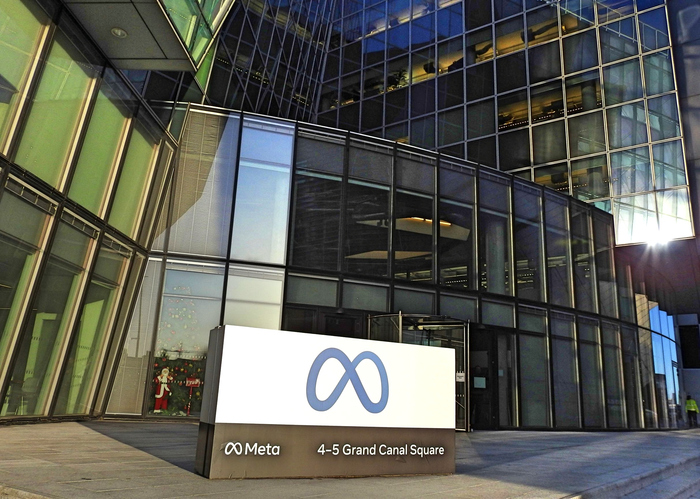May 14, 2025

This information is provided for educational purposes only by Kohn, Kohn & Colapinto and does not constitute legal advice. No attorney-client relationship is created by accessing this content. Laws and regulations may change, and this material may not reflect the most current legal developments. If you believe you have a whistleblower claim, consult a qualified attorney to discuss your specific circumstances.
Rule 21F-17 is a regulation enforced by the Securities and Exchange Commission (“SEC”) which prohibits any person or company from taking adverse action against a whistleblower for reporting potential violations of securities law.
In specific, 21F-17 aims to prevent companies from using non-disclosure agreements to silence employees from reporting violations. In essence, anything that hinders or discourages individuals from reporting could be considered a violation.
The most common violations of Rule 21F-17 are:
- Enforcing or threatening to enforce a confidentiality agreement that restricts such communication.
- Having internal policies or procedures that discourage reporting.
There have been over twenty-one enforcement actions for Rule 21F-17 violations, including a massive case against game design company Activision Blizzard in 2023 for $35 million for failing to maintain disclosure controls related to complaints of workplace misconduct and violating whistleblower protection rule.
If you are an employee who has signed a confidentiality agreement that appears to restrict you from coming forward with potential securities violations, continue reading. Under securities law, it is your right to report such violations, receive protection, and and you may even be eligible for an award if an SEC investigation uncovers something more.
Continue reading to learn more about Rule 21F-17 and your rights.
Your Rights Under 21F-1
When you report violations of 21F-17, you have the right to do so, regardless of the NDA that you signed. You may also be entitled to compensation. Here is a breakdown of what you can receive if you choose to report a violation:
- Anti-retaliation: The Dodd-Frank Wall Street Reform and Consumer Protection Act prohibits companies or individuals from retaliating against employees who report securities law violations, which includes Rule 21F-17. Retaliation might include termination, demotion, pay cuts, negative performance reviews, ostracization, and harassment.
- Confidentiality: The SEC allows whistleblowers to report violations of 21F-17 anonymously and confidentiality, so long as they have an attorney present. An attorney must be present in connection with the submission for the whistleblower to receive an award.
- Legal Representation: During the SEC investigation process you have the right to have legal representation. An attorney specializing in SEC cases can ensure your rights are fully protected and can maximize your potential reward (depending on eligibility).
You may also be eligible for an award if your information leads to a successful enforcement action, where the total monetary sanctions exceed $1 million. These awards can range from 10 to 30 percent of the sanctions collected by the SEC.
Note: a violation of 21F-17 may lead to an investigation where the fraud is then discovered. An award is potentially granted to whistleblowers in connection with this violation. Under certain circumstances, even if the violation isn't proven, the SEC may still grant an award to those who provide high-quality information leading to an investigation. Thus, it's important to keep strong documentation, which will help strengthen your claim.
Recent 21F-17 Cases
D. E. Shaw & Co. AKA DESCO (2023)
The SEC charged D. E. Shaw & Co. for making it difficult for employees to report potential securities violations by requiring them to sign agreements that kept them from disclosing confidential information (even to the SEC) and requiring departing employees to sign waivers saying they hadn’t filed complaints with any government agency. D. E. Shaw settled the charges by paying a $10 million fine and agreeing to change their practices.
Activision Blizzard (2023)
Activision Blizzard paid $35 million to settle charges with the SEC. The company failed to properly track and report complaints of workplace misconduct, even though they acknowledged its importance to the business. Additionally, they had separation agreements that violated whistleblower protection rules by requiring former employees to notify Activision Blizzard before talking to the SEC.
CBRE, Inc. (2023)
Commercial real estate firm CBRE settled charges with the SEC for violating whistleblower protection rules. Between 2011 and 2022, they required departing employees to sign a release stating they hadn’t filed complaints against CBRE with any federal agency, potentially discouraging them from reporting securities violations to the SEC. After the SEC investigation began, CBRE cooperated by revising agreements, clarifying whistleblower rights to employees, and paying a $375,000 penalty.
Reporting Violations of Rule 21F-17
Before you report violations of Rule 21F-17, we suggest you contact an attorney. Most work on a contingency basis, meaning, they don't get paid unless they win your case. An attorney will ensure you have the best chances possible at receiving an award and enforce legal protections.
The general process of reporting your concerns are as follows:
- Gather Evidence: it's super important that you gather as much evidence as possible. This includes gathering documentation, such as confidentiality agreements that restrict communication with the SEC, or other company policy documents that discourage reporting securities violations. Communications via email are also helpful.
- Seek Legal Advice: get in touch with an SEC whistleblower attorney who can help you prepare and file your complaint. These processes are complex with many rules, and any misstep or delay will lead to your case being dismissed. Seek those who have a reputation in both securities and whistleblowing practice areas.
- Blow the Whistle: under the SEC Whistleblower Program, you can blow the whistle anonymously and confidentially. However, you must have an attorney present, as they act as an intermediary between you and the SEC. Also, by reporting the violations anonymously, you further reduce the possibility of retaliation. And if does occur, you are protected!
Our Case Established Rule 21F-17
Our firm was behind the first ever action against a company for confidentiality agreement that hindered whistleblowers. In our case Kellogg Brown & Root (KBR), our whistleblower’s case forced them to pay a $130,000 penalty and set a precedent for the SEC to penalize companies who use restrictive NDAs.
Contact Our Firm
As the team behind Rule 21F-17, we have expert knowledge of illegal NDA’s. But if that’s not enough, our team consists of Stephen M. Kohn, one of the pioneers of modern whistleblower law, and former SEC acting chair and commissioner Allison Herren Lee. These are two of the world’s leading experts in securities law, backed by an expert team of securities fraud attorneys.
Full Legal Text
17 CFR § 240.21F-17
Staff communications with individuals reporting possible securities law violations.
(a) No person may take any action to impede an individual from communicating directly with the Commission staff about a possible securities law violation, including enforcing, or threatening to enforce, a confidentiality agreement (other than agreements dealing with information covered by § 240.21F-4(b)(4)(i) and § 240.21F-4(b)(4)(ii) of this chapter related to the legal representation of a client) with respect to such communications.
(b) If you are a director, officer, member, agent, or employee of an entity that has counsel, and you have initiated communication with the Commission relating to a possible securities law violation, the staff is authorized to communicate directly with you regarding the possible securities law violation without seeking the consent of the entity's counsel.
Our Firm’s Cases

Environment & Human Rights Violations Exposed
Oil industry’s environmental crimes and cover-up in Colombia have been exposed. Whistleblower Andrés Olarte Peña, with the support of his attorneys Kohn, Kohn & Colapinto and the damning evidence compiled in the Iguana Papers, is calling for an investigation into Ecopetrol and its executives by the Colombian government and the U.S. Securities and Exchange Commission.

$30 Million Award
Protecting the confidentiality of Wall Street whistleblowers is among the most important breakthroughs in federal whistleblower law. Under the Dodd-Frank Act, whistleblowers can file anonymous cases, and everything about their case, including who they sued, remains secret.

$13.5 Million Award
Our firm represented an anonymous whistleblower, who on May 17, 2021, received a whistleblower award of almost $13.5 million. The SEC has issued more than $31 million in whistleblower awards related to this case.
![Reporting Recordkeeping Failures To The Sec [2025 Guide]](https://kkc.com/wp-content/uploads/2025/01/Recordkeeping-Failures.jpg)




